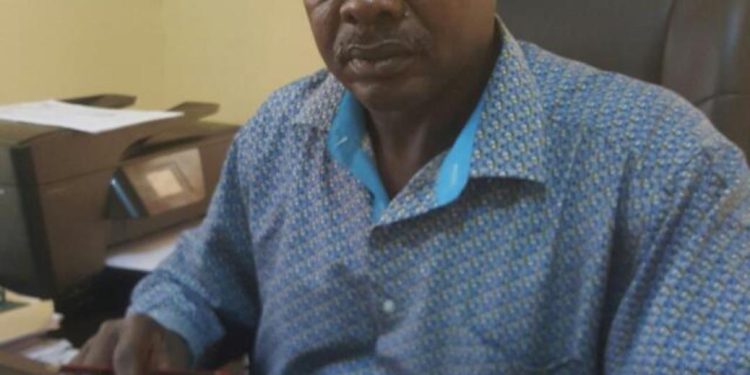The FCFA 30 billion worth of C2D transformational projects deliberated, arbitrated, and funded have not been realized, four years after the funds were made available. The Debt Reduction-Development Contract (C2D) is a tool to restructure the debt of certain countries. In practical terms, once a Heavily Indebted Poor Country has signed a C2D with AFD (Agence Française de Développement), the country continues to service its debt until repayment. At each payment on the due date, AFD transfers the equivalent amount to the country in the form of a grant. This amount is used to finance poverty reduction programs.
The Bamenda population has placed the low execution rate of C2D projects at the doorsteps of Mr. Atanga Robert Tantoh, the Project Coordinator, whom they accuse of being “lazy, non-collaborative, and unproductive.”
It is worth recalling that the C2D transformational projects for Bamenda were earmarked in 2018. However, the funding convention was signed in 2019 and had to run till 2025. The population was enthusiastic and expectant, given that Bamenda was in dire need of transformational infrastructure to impact the living conditions of the people.
Anxious to set the ball rolling fast, given that the package was considered as manna from Heaven to an impoverished region, the Bamenda City Council organized a workshop on March 6, 2019, to propel the Local Coordination Unit and the Local Consultative Committees from the sub-divisional councils to get to work immediately. Projects deliberated and validated included road networks, drainage, and wastewater disposal, commercial equipment, small urban facilities, and cultural, sports, and relaxation facilities.
The Local Consultative Committee, LCC, members amended, for security reasons and other challenges, the earmarked projects and then prioritized them and approved them for execution.
Road covered so far
No road has been covered so far. An anonymous Bamenda denizen told this reporter that “Mr. Atanga Robert Tantoh has nothing to write home as per the execution of selected projects.”
“Bamenda,” he thundered, “is still in infrastructural ruin and is rated last as per the execution of C2D projects nationwide.”
In a vox pop along the streets of Bamenda, Mr. John Paul Ndi regretted that the national road leading to the region and other inner city roads are near-impracticable and are all in a piteous state. He said this ought not to be so, because, for strategic reasons, the C2D program was structured to be managed under the Bamenda City Council which has proximity to the population and fully understands their needs and aspirations in the context of the ongoing Anglophone crisis. And to make things easier for the Project Coordinator, the priority investment projects were subdivided into two phases, with an immediate phase delegated to the Local Coordination Unit for rapid execution. This, according to the population, was to speedily remedy the pressing infrastructural deficit and thus create a peaceful atmosphere for the execution of major infrastructure projects. “Nothing concretely has been realized on the ground,” locals say.
Civil Society Swings In
Some civil society organizations, considered as being unavoidable partners in local development have been upbeat about knowing what has been stalling the execution of projects four years after they were launched, given that the local population is not feeling the impact of the earmarked projects.
Their Investigations have revealed that the execution of the projects is at an all-time low rate. It emerged from field observations that in 2022, only two (2) projects were executed for an approximated amount of FCFA 300 million out of a multi-billion package. Curiously, this low turnover in investment was not reflected in the functional budget that was entirely consumed.
Another vexing issue has been the rampant cases of corruption and laxity in the management of contracts, leading to unjustified delays in the execution of projects and poor quality of work.
To compound an already bad situation, there is little or no communication around the program by the Project Coordinator, thus frustrating the participatory approach that requires the involvement of the local population who are the principal beneficiaries.
It also emerged that property meant for the C2D projects has been grossly mismanaged as “vehicles are either misplaced or stolen, therefore further handicapping the performance of the unit.”
It is highly alleged that the poor human resource management of the Project Coordinator has led to the demotivation of most performing workers, and this has often impacted negatively on the quality of work delivered.
The Project Coordinator’s Gimmicks?
It is muted in high places, though in subdued tones that Mr. Atanga Robert, the Project Coordinator is always putting issues of insecurity to justify his poor performance. Some say these are mere gimmicks to hide his incompetence, given that the security situation has greatly improved and many cultural and social events are being held without incidences.
He is also being accused of unilateral decisions and his unwillingness to collaborate with government officials and other authorities in the city who are stakeholders in the development of this program is his undoing.
The Way Forward
Concerned Bamenda denizens believe that all is not yet lost. They argue forcefully that there can still be a complete turnaround to permit the people of Bamenda to benefit from the C2D earmarked projects. According to them, this will require a bold step that involves a leadership turnover at the helm of C2D projects in Bamenda to bring in a new catalyst in the coordination unit.
They say a new leadership will bring in fresh impetus and accelerate the execution of work, given that there is relative calm and insecurity can no longer be used as a pretext to delay the execution of projects. And such a new leadership should bolster a team spirit that will certainly ameliorate the working environment and factor in the involvement of the population and all stakeholders through improved communication and constant consultation.








